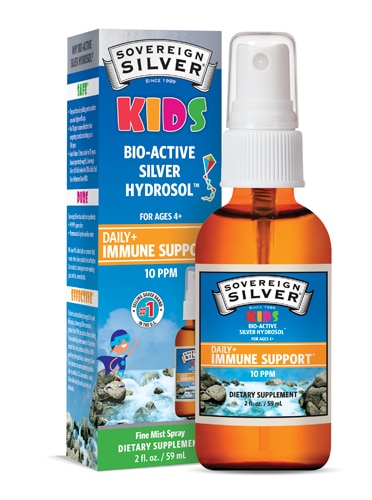[vc_row][vc_column][vc_column_text]Making sure our kids get the nutrition they need to grow and thrive is a top priority for every parent. If you’ve decided to use supplements, here are some things to understand about
using them safely plus side effects to watch for.

Safety tips to consider with vitamins for kids
Mind the dosage
First and foremost, just because those gummy vitamins are delicious and chock full of nutrients doesn’t mean kids can have as many as they want. While many vitamins and minerals are essential to health in quantities outlined by the RDA, many can be toxic at high levels. Yes, vitamin C and zinc help bolster the
immune system, but large doses can actually be quite harmful.
Dr. Elissa Downs, a pediatric gastroenterologist at the University of Minnesota Masonic Children's Hospital, reports that “High levels of vitamins in the system, or hypervitaminosis, is overall pretty rare but can be significant.” She notes that “infants and young children may be at higher risk due to body size and tolerance.”
Additionally, because so many prepared foods are fortified – breakfast cereal and beverages, for example – you may not realize you’re already supplementing your child’s diet with many added nutrients above and beyond what naturally occurs in the food itself.
Consult with your child’s pediatrician
Before giving your child any supplements, speak to their doctor. Especially if your child takes medications or has a medical condition, it’s important to take into account how supplements may affect them. Certain supplements may interfere with the absorption of medications, while others can amplify their effects.
Many popular supplements may have blood thinning properties, especially important to be aware of in the weeks before surgery.
And while vitamin C may help with the absorption of iron, recent research suggests that it may decrease the absorption of some common medications for ADHD.
Shannon Maset, a nutritional therapy practictioner, advises watching carefully how a child responds to any new supplement. “When starting a new vitamin or supplement,” she suggests, “start one at a time and allow three to four days in between, so if symptoms arise you can more easily determine which one could be causing them.” She recommends that “if your child is feeling fatigued, irritable, complaining of heachaches, or you start to notice changes in bowel habits or sleeping patterns, it may be worth stopping the new supplement to see if they go away.”
Most common side effects of vitamins for kids
Downs explains that while the body clears excess water-soluble vitamins like vitamin C and the B vitamins pretty easily, fat-soluble vitamins (A, D, E, K) are more likely to build up in our systems.
Downs says “toxicity symptoms can include nausea, vomiting, headache and dizziness.” Some supplements, even if they’re not toxic in large amounts, may still cause unpleasant side effects, often in the gastrointestinal system.
Two nutrients sometimes included in children’s multivitamins in excess of the RDA with more serious side effects and risk of toxicity are vitamin A and selenium. Pay attention to how much of these nutrients your child is getting from all sources (supplements, whole foods and fortified foods) to avoid inadvertently giving them too much.
Vitamin A
Too much
vitamin A can cause headaches, nausea, skin and bone issues, and liver damage. Many multivitamins contain considerably more than the recommended daily allowance (RDA). If you’re
choosing a multivitamin, pick one with lower amounts of vitamin A to ensure kids aren’t getting too much.
Downs points out that vitamin A is often included in prescription medications and skin creams, so parents should be aware of these additional sources.
Selenium
Selenium is an essential nutrient included in many multivitamins. However, consuming too much selenium can be toxic, even fatal.
Milder symptoms of excess selenium intake include bad breath, nausea, hair loss and fatigue. Chronic overconsumption of selenium may lead to kidney failure and breathing problems.
If your child’s diet includes grains, legumes, dairy and other sources of selenium, the extra selenium found in many multivitamins may lead them to consume significantly more than the RDA. Brazil nuts are especially high in selenium, containing more than the daily allowance in a single nut, so it’s best not to eat them daily, and not to eat too many at a time.
Iron
For kids who don’t eat meat, pediatricians sometimes recommend an
iron supplement, which can cause
constipation and stomach aches at higher doses.
Iron is best absorbed if taken on an empty stomach, but this can cause nausea. To prevent stomach discomfort, iron can be taken with a small amount of food, preferably something containing vitamin C to enhance absorption.
It’s also important to be aware that iron competes with calcium for absorption, so it’s helpful to avoid taking iron with
calcium-rich foods such as milk, cheese and yogurt.
The National Institutes of Health warns that
iron supplements may interfere with the absorption of several medications. At extremely high levels (hundreds of thousands of milligrams), they warn that iron “can cause organ failure, coma, convulsions and death.” Like all supplements, it’s best to keep iron out of reach to avoid accidental overdose, which the NIH reports happens to thousands of children each year.
Probiotics
With all the attention about the benefits of
probiotics for a
healthy gut, more parents are giving supplements containing
probiotics to their children. While most people tolerate probiotic supplements well, others, especially in the first weeks taking them, may experience
side effects such as gas, bloating, or diarrhea.
Maset explains, “When we start to introduce new bacteria to our gut, it can cause a disturbance in our microbiome, which can show up as stomach upset, bloating or changes in bowel movements. In some cases it may even look like flu-like symptoms for the first few days.” She advises “starting with a low dose and gradually working up to the recommended dose and drinking lots of water to reduce the likelihood of experiencing these symptoms.”
Fiber
Many parents turn to
fiber supplements to help children struggling with constipation. Maset has seen children who ate a few too many fiber bars and suffered unpleasant tummy issues. “Too much fiber can cause diarrhea and loose stools,” she explains. As with other supplements, too much of a good thing can pose a problem. Start adding fiber to your child’s diet slowly to avoid overwhelming their system, and be sure they understand that fiber bars shouldn’t be eaten in large quantities.
Magnesium
Magnesium, a popular supplement for promoting digestion and sleep, can cause problems if taken in larger doses. The NIH cautions that “High intakes of magnesium from dietary supplements and medications can cause diarrhea, nausea and abdominal cramping.” Very large amounts of magnesium, they warn, “can lead to irregular heartbeat and cardiac arrest.”
Melatonin
More parents are choosing to give their
kids melatonin supplements, though experts emphasize they should be used in very small dosages and only for short periods of time when a time adjustment may prove challenging, such as overseas travel.
Common side effects of melatonin supplements include dizziness, headache and waking up groggy.
Vitamin D
Awareness of how kids’ increasingly indoor lives are affecting their vitamin D levels has led more parents to give their
kids vitamin D supplements. Some supplements contain much more than the RDA, and the NIH warns that too much “can cause nausea, vomiting, muscle weakness, confusion, pain, loss of appetite, dehydration, excessive urination and thirst, and kidney stones.” At very high levels, “vitamin D can cause kidney failure, irregular heartbeat and even death.”
Downs also cautions parents supplementing with vitamin D that “excess vitamin D can lead to calcium and bone issues.”
Herbs
Herbal medicine is enjoying a renaissance, and every year more people are
using herbs to support health. However, herbs that are safe for adults aren’t necessarily safe for children, so it’s best to consult with a doctor before
giving them to kids.
Some food-like herbs such as
chamomile and
elderberry are generally considered safe for children, though a small fraction of people have allergic reactions to them. A number of popular herbs in the daisy family such as chamomile,
echinacea and dandelion may cause an allergic reaction in people with ragweed allergies.
Like other supplements, herbs may interact with medications, so it’s important to consult your pediatrician before giving any herb to a child.
Downs notes, “Signs and symptoms of high doses of herbal supplements can be harder to pinpoint, but some common herbals, including aloe vera, ashwagandha, chapparal and butterbur have been linked to liver issues.”
Other common side effects of vitamins for kids
- Excess vitamin C may cause diarrhea or nausea
- Too much vitamin E or vitamin K may increase risk of bleeding
- High doses of niacin (also known as vitamin B3) can cause dizziness headache, upset stomach
- Long-term consumption of excess vitamin B-6 can cause neuropathy and nausea
- Omega 3 fatty acids side effects may include bad breath, nausea and stomach upset
- Too much zinc can cause dizziness, headaches and stomach upset.
While supplements in moderate amounts may help to make up nutritional shortfalls, experts recommend trying to
help your child eat a varied diet so they can get the nutrients they need from food.
Always consult with your child’s doctor before giving them supplements and pay attention to symptoms your child might exhibit. If they report nausea or headaches, consider checking in with their pediatrician to see if supplements might be an issue.
†These statements have not been approved by the Food and Drug Administration. These products are not intended to diagnose, treat, cure or prevent disease.
[/vc_column_text][/vc_column][/vc_row][vc_row][vc_column][vc_text_separator title="Featured Products" border_width="2"][vc_row_inner equal_height="yes" content_placement="middle" gap="35"][vc_column_inner width="1/3"][vc_single_image image="175830" img_size="full" alignment="center" onclick="custom_link" img_link_target="_blank" css=".vc_custom_1718375734583{padding-right: 7% !important;padding-left: 7% !important;}" link="https://www.vitacost.com/megafood-kids-one-daily-multivitamin-chews-with-vitamin-d"][/vc_column_inner][vc_column_inner width="1/3"][vc_single_image image="175829" img_size="full" alignment="center" onclick="custom_link" img_link_target="_blank" css=".vc_custom_1718375758151{padding-right: 7% !important;padding-left: 7% !important;}" link="https://www.vitacost.com/coromega-omega-3-kids"][/vc_column_inner][vc_column_inner width="1/3"][vc_single_image image="175831" img_size="full" alignment="center" onclick="custom_link" img_link_target="_blank" css=".vc_custom_1718375803597{padding-right: 7% !important;padding-left: 7% !important;}" link="https://www.vitacost.com/olly-kids-chillax"][/vc_column_inner][/vc_row_inner][/vc_column][/vc_row]




